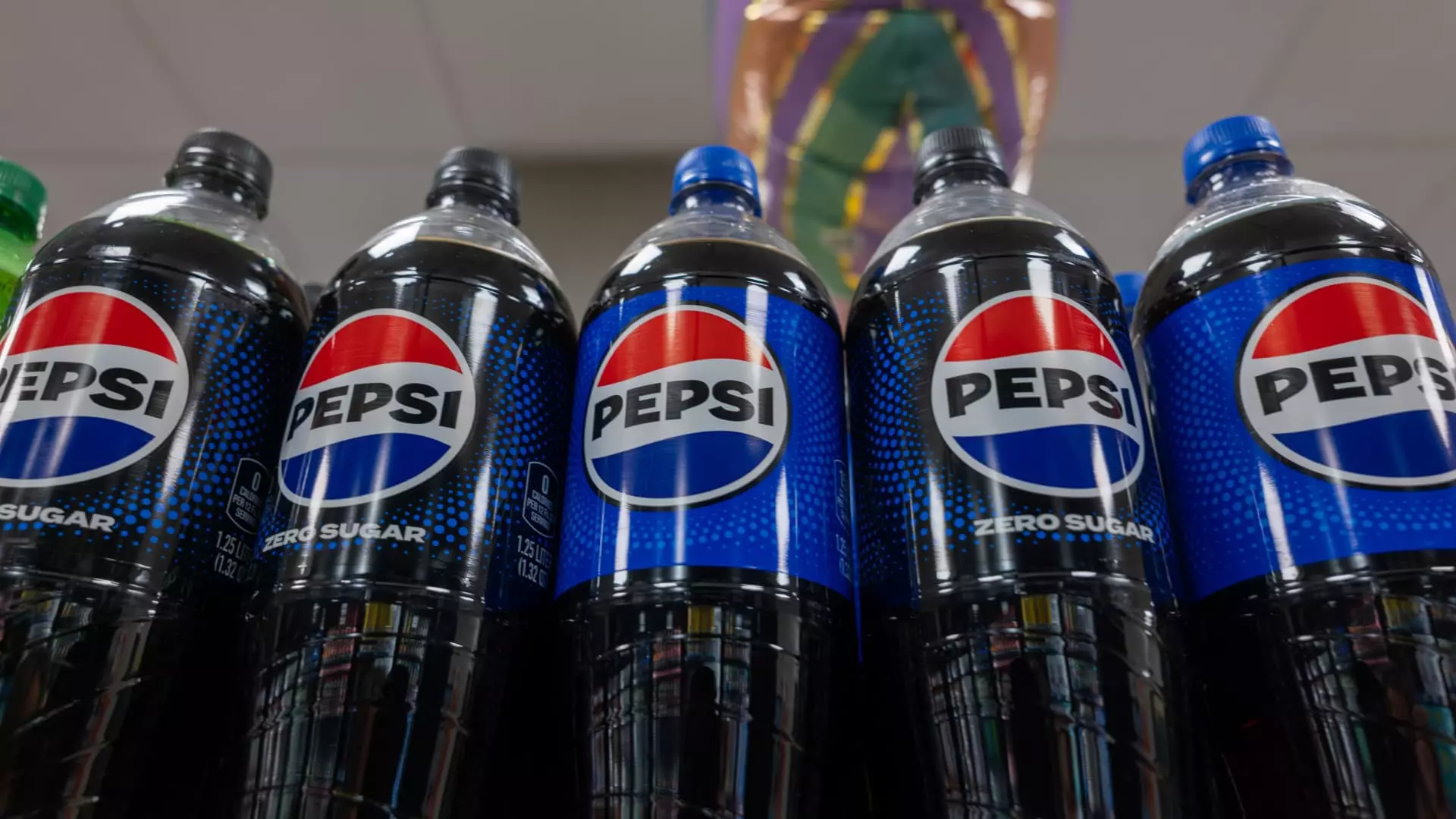PepsiCo’s latest quarterly report reveals a concerning trend shrouded in mixed results, signaling an industry heavyweight grappling with multiple vulnerabilities. Although the food and beverage titans are managing to buoy their international sales figures, a glaring weakness in North America raises questions about their overall strategic approach. The revelation that quarterly earnings were lower than anticipated, with a significant cut to their forecast for core constant currency earnings per share, paints a concerning picture of their future. It’s evident that the company is at a crossroads, amid evolving consumer expectations and economic pressures.
The reported earnings of $1.48 per share fell short of the projected $1.49, despite revenue exceeding expectations at $17.92 billion (up slightly from the anticipated $17.77 billion). When analyzing these figures, one cannot overlook that the net income attributable to the company has experienced a sharp decline from $2.04 billion, or $1.48 per share, a year earlier to $1.83 billion, or $1.33 per share. This stark contrast calls for deeper reflection on the sustainability of the company’s profit margins and market positioning, especially in a consumer environment marked by value sensitivity.
Supply Chain Challenges and Tariff Woes
CEO Ramon Laguarta’s remarks on the challenging operating landscape highlight an unsettling acknowledgment of the fragile economic climate. His emphasis on “expected volatility and uncertainty,” particularly regarding global trade developments, hints at a profound awareness that tariffs and shifting economic conditions are becoming detrimental factors. As many companies scramble to adjust their business models in the wake of inflation and tariff-induced cost hikes, the onus is on PepsiCo to recalibrate its strategies to mitigate these risks.
There is a growing belief that the premium consumer brands can no longer operate under the assumption of unlimited spending capacity. The harsh reality is that consumers are tightening their belts due to inflationary pressures, forcing brands to rethink their approaches to product placement and promotional strategies. Laguarta’s comments, along with CFO Jamie Caulfield’s acknowledgment of altered shopping patterns, should serve as a wake-up call for any company still relying on traditional branding techniques without adapting to the evolving economic atmosphere.
Stagnation in the North American Market
The report highlights alarming stagnation in PepsiCo’s North American segments, where both beverage and food divisions have witnessed a notable downturn. The overall volume reduced by 3%, alongside a 1% decline in its domestic food unit. Despite promising prospects for specific products like Pepsi Zero Sugar, it’s evident that the company must revamp its strategy to foster broader appeal and regain market share. The narrow victories for segments like Miss Vickie’s chips and Quaker’s rice cakes may not be enough to offset the decline in the core North American market.
PepsiCo’s reliance on an expanding portfolio of multicultural and functional products, in a bid to rekindle interest among consumers, signals a desperation that is reminiscent of outdated tactics. The acquisitions of functional brands like Poppi, while aiming to capitalize on health trends, don’t inherently solve the broader issue of consumer disillusionment with traditional brands. This approach should prompt reconsideration of how companies innovate in aligning product offerings with contemporary consumer values and lifestyles.
A Call for Consumer-Centric Reinvention
For PepsiCo to thrive in these turbulent waters, a radical transformation is paramount. Engaging directly with consumers and ensuring not only better product availability but also alignment with current preferences will be critical steps. As consumers become increasingly discerning and focused on value, brands must pivot from mere transactional relationships to a more comprehensive understanding of consumer needs.
The ability to interpret data-driven consumer insights into actionable business strategies cannot be overstated. This is not merely a business adjustment; it’s about creating an intimate relationship with the consumer that fosters brand loyalty amidst fierce competition. The world is changing rapidly, and companies need to be more than just responsive; they must be preemptive, forecasting trends before they become mainstream rather than trailing behind.
This sobering assessment of PepsiCo’s position should provoke urgency and not complacency. The ability to adapt to these challenges will define their success or failure in an era characterized by unpredictable economic conditions.

